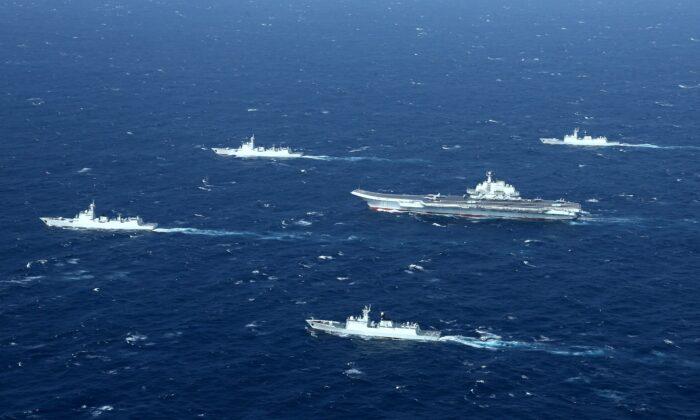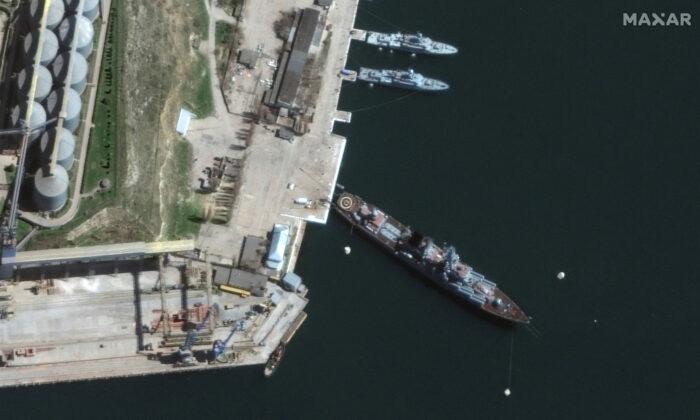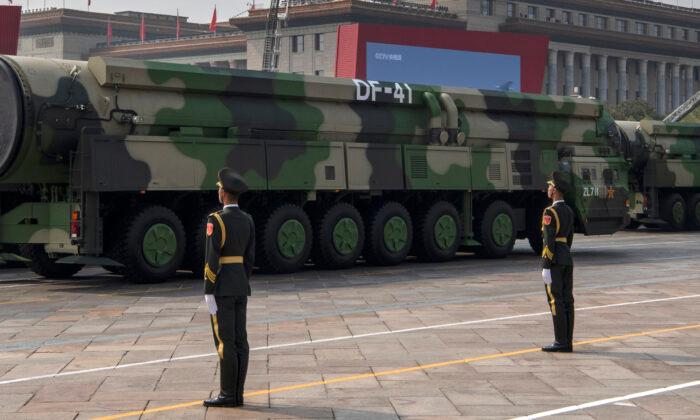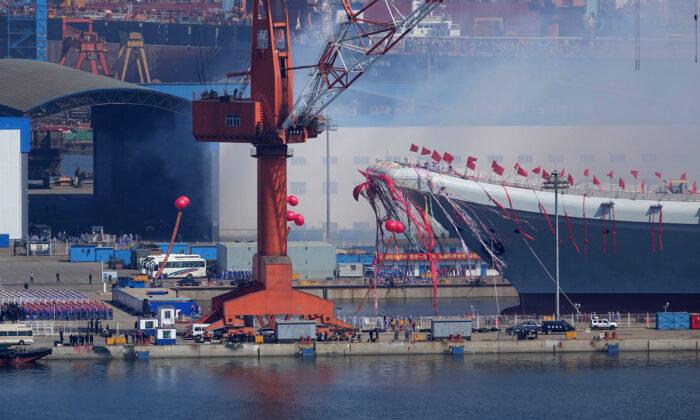In the past month, two of America’s treaty allies in the Indo-Pacific have demonstrated, that regardless of a nation or navy’s size, one of the best methods for dealing with an expansionist and aggressive China is to expose its bad behavior at sea, something the U.S. Department of Defense has been reluctant to do over the past decade.
Recent examples of such strategic thinking and action come from Australia and the Republic of the Philippines.
In the case of Australia, over the past month, the Chinese regime has dispatched two People’s Liberation Army Navy (PLAN) auxiliary general intelligence (AGI) ships to closely monitor this year’s combined Exercise Talisman Sabre, which includes navies from the United States and Japan, and military personnel from Canada, South Korea, New Zealand, and the United Kingdom. This is now the third time China has dispatched its spy ships to monitor what is Australia’s largest war-fighting exercise.
To its credit, the Australian Defense Force (ADF) has not only sent ships and aircraft to monitor and track these two PLAN warships, but Canberra has also been unashamedly vocal about reporting the presence of these Chinese spy ships to the Australian public. Australian Defense Minister Peter Dutton confirmed ADF assets had been closely monitoring these Chinese military vessels as part of Australia’s “broader surveillance effort.” Meaning, the government of Australia recognizes that one of the best weapons against such activity is to put a spotlight on Beijing’s aggression. Such public reporting not only informs the Australian public, but the rest of the international community as well.
And while the presence of these PLAN warships is not illegal under international maritime law, the fact the PLAN has dispatched these ships to Australia’s coastal waters demonstrates gross hypocrisy from the Chinese Communist Party (CCP), which routinely complains about the presence of American and other nations’ intelligence collection ships within the First Island Chain.
Secondly, our friends in the Republic of the Philippines have demonstrated incredible courage in the face of the Chinese Dragon that daily stalks the South China Sea. For instance, in March of this year when the Chinese regime dispatched some 200 maritime militia ships to Whitsun Reef in the South China Sea, Philippine Defense Minister Lorenzana not only reported on the location of these 200 Chinese vessels, but also demanded that they leave the reef. More recently, the Philippine Coast Guard released a statement that not only had it been tracking the presence of a PLA Navy Auxiliary ship within the Philippines Exclusive Economic Zone, near Marie Louise Reef in the South China Sea, but also sent a verbal challenge to the Chinese warship which subsequently left the area.
In both cases of Australian and Philippine activity, we see the courage of smaller nations in standing up to and challenging the hegemonic activities of the CCP, again, something the U.S. establishment has been openly averse to doing.
Recent examples of American military reluctance to confront the CCP’s bad behavior at sea are the three times the PLAN dispatched intelligence collection ships to collect intelligence on the U.S.-led Rim-of-the-Pacific (RIMPAC) exercises in Hawaii’s waters, the largest naval exercises in the world. In 2012, the presence of a PLA Navy AGI was not publicly acknowledged until after the conclusion of the exercise, corroborating the unwritten, but official, policy of “not provoking Beijing.”
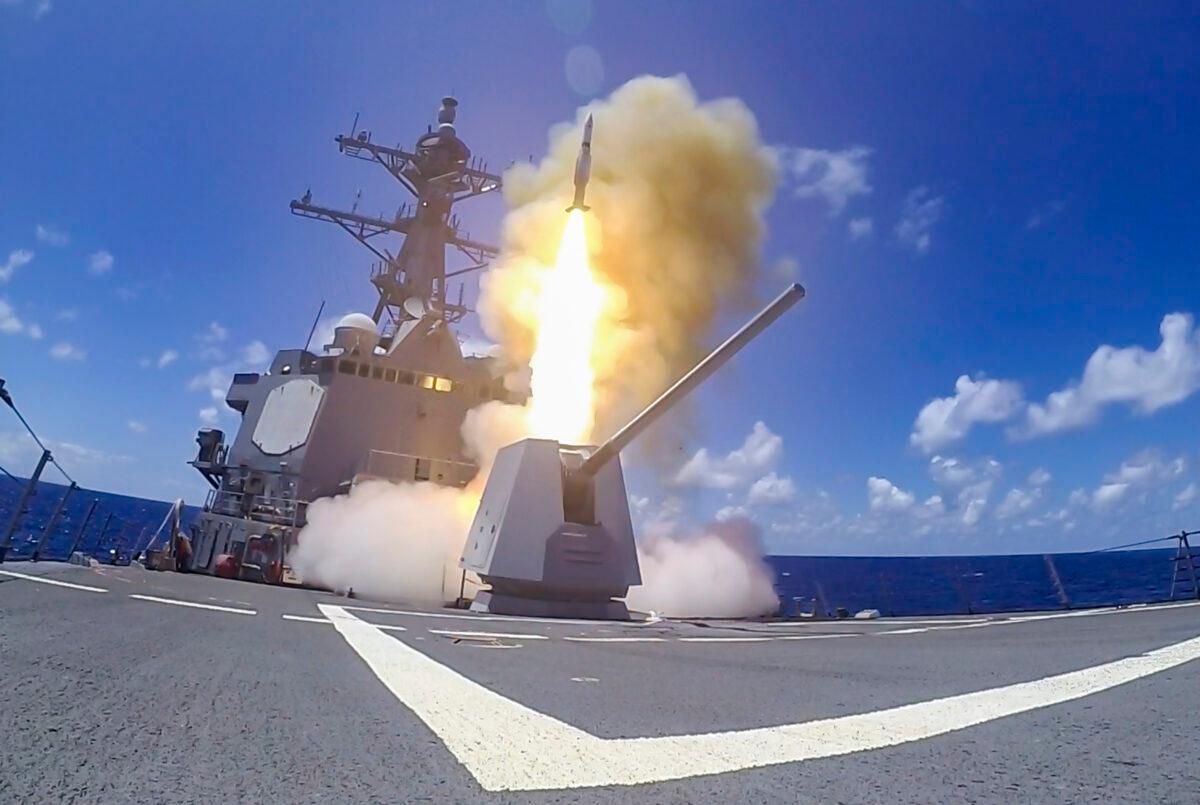
While the presence of PLAN intelligence collection ships during RIMPAC has been revealed through civilian press outlets, like the U.S. Naval Institute Press, in all three cases (2012, 2014, and 2018) there was no official reporting from the Department of Defense as to the actions taken by U.S. Indo-Pacific forces to monitor and track these spy ships, let alone to have a well-thought and effective public messaging strategy. The power of the unwritten “do not provoke Beijing” mindset has for too long dominated the Indo-Pacific Command, especially when it comes to reporting the location and activity of PLA Navy warships, something our allies in Indo-Pacific have not been afraid to do.
Since the Trump administration, the era of “do not provoke Beijing” has been revoked in many other areas of U.S.-China relations—so why not in the maritime domain? The U.S. Department of Defense should recognize that directly confronting the Chinese regime’s bad behavior has proven capable of destabilizing both the high-end conventional and low-end unconventional components of China’s expansionist maritime strategy in the Asia-Pacific. Not only does confrontation produce robust effects in the military domain, it also generates ripples across China’s broader strategy. The CCP has consistently sought to present China as a justifiably aggrieved party that is only seeking to reclaim what legitimately belonged to Beijing before. However, recent Chinese maritime activities in and around both the Philippines and Australia in no way correspond to this historical victim model.
By directly confronting and publicly addressing these aggressive activities, Manila and Canberra have shone a powerful spotlight on what exactly China is under Xi Jinping and the CCP: a totalitarian, supremacist, and unrelentingly expansionist regime that believes it has the inalienable right to dominate Asia. Xi and the CCP believe the regime’s time for regional, if not global, dominance has come and that they are entitled to redeem this right regardless of third-party considerations. Both Manila and Canberra have taken bold, independent actions to clearly dissuade the CCP of this notion.
America should not only take note, but should support our allies by adopting similar procedures for our Department of Defense. RIMPAC 2022 is just around the corner, the Commander of Indo-Pacific Command should have a vetted and ready to implement public affairs reporting plan ready to be unleashed the minute Xi decides to dispatch an intelligence collection ship … or more … to Hawaii.
